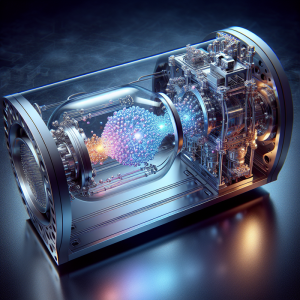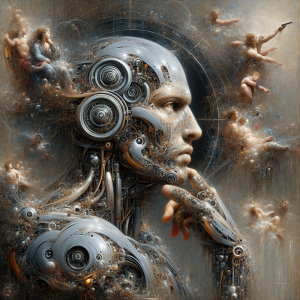Hugging Face Introduces Open-Source Robotics Library: LeRobot
Hugging Face, renowned for its advancements in artificial intelligence, has recently introduced an innovative open-source robotics library dubbed LeRobot. The launch of this toolkit marks an important milestone for both the robotics and AI community, particularly following the recruitment of Remi Cadene, previously with Tesla, Inc. as a staff scientist, to lead this venture.
The Significant Role of Remi Cadene
Since his recruitment in March, Cadene’s contribution has been instrumental to the development of LeRobot, drawing from his valuable expertise and insights gained from his tenure at Tesla as they explored humanoid robot prototypes like “Optimus.” His experience dovetails with Hugging Face’s expertise in the realm of transformer-based language models and generative AI—a pairing that has substantially propelled robotics forward.
LeRobot: A Vehicle for AI Democratization
Hugging Face envisions LeRobot as a vehicle for the democratization of AI in robotics, arming an emerging cohort of roboticists with the tools and resources necessary to push the boundaries of innovation. Cadene has revealed that the next frontier for AI lies in its real-world application, hence the establishment of a community-centered AI robotics initiative that is open to all.
What LeRobot Brings to the Table
With the introduction of LeRobot, Hugging Face offers an extensive platform that encompasses data sharing, visualization, and the cultivation of cutting-edge models. The library affords users the benefit of a suite of pretrained models alongside the ability to conduct physics simulations, thereby enabling access even in the absence of physical robotic hardware. This substantially increases the reach to developers and hobbyists who aspire to advance in the field.
Examples of LeRobot’s Capabilities
Showcasing the library’s capabilities, Cadene offers examples posted on Github, where robots are trained for tasks like navigating novel terrains and handling objects based solely on visual input. These abilities have been substantiated through simulation results that reflect the code’s prowess and its applicability to a range of robotic hardware, from educational robotic arms to intricate humanoids used in advanced research.
The Philosophy Behind LeRobot
The ethos of LeRobot is deeply rooted in an open-source philosophy, mirroring Hugging Face’s dedication to preventing the monopolization of AI robotics by a small faction of corporations. By offering unrestricted access to LeRobot, the initiative fosters a worldwide collective effort to achieve milestones in the robotics domain.
The Goal of Building a Crowdsourced Robotics Dataset
Another cornerstone of LeRobot’s success is Hugging Face’s goal to curate the most expansive crowdsourced robotics dataset, calling upon a diverse array of contributors such as universities, startups, tech companies, and devoted enthusiasts. The vast collection of data, encapsulated in terabytes of video footage, will be organized for efficient uploading and downloading through the Hugging Face hub.
Building a Rich and Diverse Community
Cadene promotes the concept of cultivating a rich and diverse community, uniting individuals from different disciplines, to pioneer the next wave of intelligent robots that will integrate seamlessly into the tangible world. Such a collaborative philosophy promises a significant and transformative impact on the landscape of AI robotics, as LeRobot emerges as a symbol of shared knowledge and collective innovation in the field.
The Impact of LeRobot’s Release
Through the release of LeRobot, Hugging Face strengthens its position in the domains of open-source robotics and AI robotics, showcasing how AI advancements are shaping our interactions with the physical world, while emphasizing the importance of collaborative development in AI models and robotics applications.
























